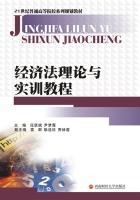)/r portion of rent were assigned exclusively to an individual tenant (or tenants), say, through the issuance of stocks against the market value of the given land, joint ownership of the land would be established. With the entire return to the ownership right assigned to private parties, each joint owner would thereby be granted authority to make decisions concerning his share of the resource. With the right to derive the rent from land wholly exclusive or unattenuated, the right to use the resource is also wholly exclusive. Various forms of transfers would insure that the value of each share be determined in the market. The implied resource use would therefore be exactly the same as before the share restriction. The implication is that the inefficient allocation of resources under the rental percentage restriction lies not in the landowner's share being reduced, but in that the right to derive income from land is not wholly exclusively assigned. In other words, under the share restriction in Taiwan, the right to land ownership was no longer wholly exclusive.
Let me carry this argument further. Under the share restriction, it will be recalled, the marginal product of tenant labor falls and the marginal product of land rises. But as long as the rental percentage is greater than zero, the marginal product of tenant labor will never be negative. (This is implied by the maximizing behavior of the landowner under the added share constraint.) Suppose both the rental percentage and the nonpecuniary bene-
fits of owning land are effectively reduced to zero; that is, private landownership is reduced to a mere title, devoid of any form of income. Return momentarily to figure 7; competition among tenants will push labor input to point k, where the wage rate equals the average product of labor, or where the entire unassigned income from land is exhausted. Depending on the production function and the wage rate, the marginal product of labor in this case may be negative.[2] That is to say, if the entire income from land is unassigned to any individual or private party, land becomes a common property resource (in our case, with a private title), and competition among users implies that nonland resources will be allocated to land until the income to land (rent) is zero.[3]
From the above discussion we may generalize: For any production function requiring resource inputs h and t, if the right to a portion of the income from h, however small, is not appropriated or exclusively assigned, the ratio t/h will rise under competition, implying a fall in the marginal product of t and a rise in the marginal product of h; as the unassigned income from h increases, the marginal product of t will accordingly be lower, and may become negative when the entire income from h is not assigned to any individual party. We may call this "the production theorem of property right assignment."
[1]. This should be distinguished from an income tax, where the tax receipt is appropriated by the government. As implied in the following discussion, the misallocation generated by a tax on resource use stems not from the tax itself, but from the fact that no government official is thereby granted authority to make decisions on resource use.
[2]. In this and my earlier statement that the marginal product of tenant labor will never be negative if
is greater than zero, the argument would perhaps be more convincing if the marginal product of labor in the relevant range were always positive, so that when
= 0 it is still positive (with the wage rate equaling the average product of labor). In this case the increases in tenant input will be gradual and continuous in response to gradual decreases of
. Theoretically the possibility of the existence of subzero marginal product of labor requires not only
= 0, but also the supposition that the title holder cannot deny tenant farming on a competitive basis.
[3]. With a somewhat different approach, this condition is reached in H. Scott Gordon, "The Economic Theory of a Common-Property Resource: The Fishery," Journal of Political Economy (August, 1954). And it is implicit in Professor Pigou's imaginative example of two roads, which is expounded by Professor Knight. See A. C. Pigou, The Economics of Welfare (London: Macmillan, & Co., 1920), p. 194; and F. H. Knight, "Some Fallacies in the Interpretation of Social Cost," Quarterly Journal of Economics, vol. 38 (1924).
The correct analysis explaining the dissipation of rent, to my mind, is analogous to Cournot's duopoly solution with free entry: with rental income replacing monopoly rent, the aggregate average product of labor replacing market demand for product, and a positive wage instead of a zero cost of production.
7.Evidence of Input Adjustments under the Share Restriction
The effects on resource reallocation under the share restriction as implied by the theory of share tenancy can be summarized as follows. The imposition of a maximum rental percentage restrains the market-determined rental percentage. In the absence of sufficient compensating payments and tenure rearrangements through which the initial resource use may be restored, the tenants would recieve earnings from farming in excess of their alternative opportunities; but competition among tenants offering to increase nonland farming inputs eliminates the residual earnings (unless the marginal product of nonland inputs goes to zero). Under effective share restriction, emphasis will be placed more on the maximization of gross crop value than on the crop value net of nonland costs. The yield per acre of land will rise, and with a lower rental percentage the landowner's rental income will be partially restored by a higher output.














